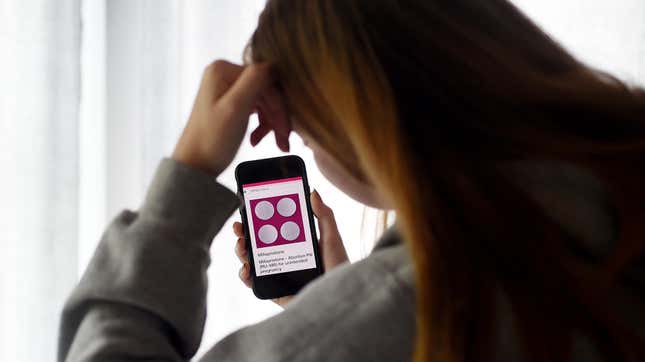You Can Now Order Abortion Pills Before You’re Pregnant in All 50 States
Having pills in your medicine cabinet before you need them is one way to combat restrictive laws, though it won't fix the overall problem.
AbortionPolitics

Just before Texas’ 6-week abortion ban took effect on September 1, online medication abortion provider Aid Access began to let Texans who aren’t pregnant order the pills to prepare for a future unwanted pregnancy. This is a concept known as “advance provision,” and it’s akin to having emergency contraception waiting in your medicine cabinet before you actually need it. It’s especially helpful for people living in rural areas or in places hostile to birth control and abortion.
Now, Aid Access has quietly rolled out advance provision of abortion pills to people capable of pregnancy in all 50 states—a move that could revolutionize how people obtain and think about early abortion care in the US.
Dr. Daniel Grossman, professor of gynecology at University of California, San Francisco, and the director of Advancing New Standards in Reproductive Health (ANSIRH), told Jezebel that this model could help people access abortion earlier in pregnancy than they would otherwise if navigating layered state barriers. In 2018, Grossman published data showing that 45 percent of 7,000 people surveyed are interested in advance provision, even moreso than they are in getting the pills over the counter or online without interacting with a clinician.
“I’ve been talking about it for a few years and it’s been hard to get any traction, either among researchers or among providers,” Dr. Grossman said. “My hope is that this will spark a conversation among mainstream healthcare providers to think about how should this model be integrated and how should it be tested and be part of mainstream medicine, where we could also then advocate for insurance coverage.” He also noted that it could help familiarize more people with medication abortion. “I’m still amazed how many people don’t even know about this option or are confused between that and Plan B.”
-

-

-

-

-

-

-

-

-

-

-

-

-

-

-

-

-

-

-

-

-

-

-

-

-

-

-

-

-

-

-

-

-

-

-

-

-

-

-

-








































